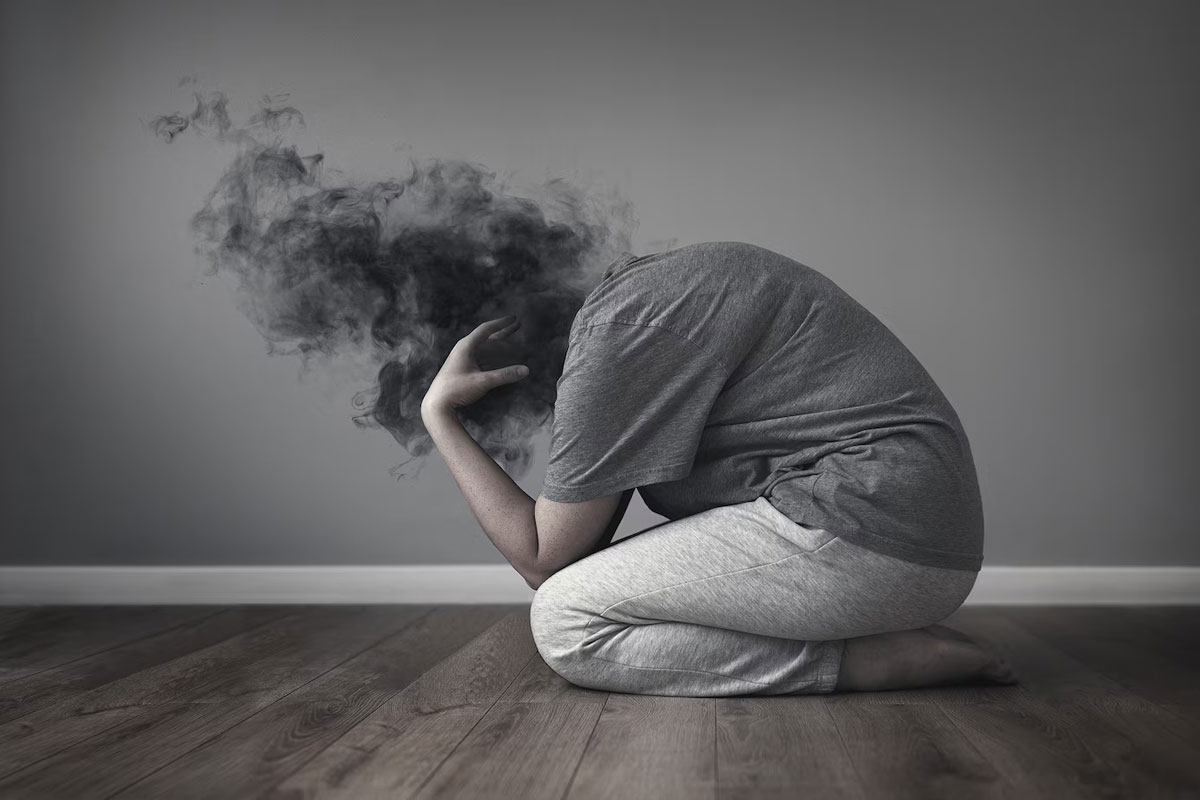6 Signs you’re struggling with Mental Health Problems
Your mental and physical health are closely connected because a calm mind is crucial for functioning well throughout the day. When your mind is troubled, it can lead to various health problems. Since your brain controls all body functions, any disruption in its normal functioning can seriously affect your physical health. Mental health affects physical well-being in different ways. It can impair decision-making abilities and weaken your body's ability to fight chronic health problems. Mental distress can also cause physical symptoms, showing changes in overall physical health.
Signs of Poor Mental Health
When you're dealing with mental health issues, you may experience various signs and symptoms. Some key signs that indicate you may be struggling with mental health include:
- Irritable Behavior: Feeling easily angered, frustrated, or sad, and becoming more sensitive to minor issues.
- Difficulty Falling Asleep: Trouble sleeping at night, either struggling to fall asleep or waking up early and unable to return to sleep.
- Loss of Appetite: Not feeling hungry or having a decreased desire to eat, often associated with anxiety and depression.
- Lack of Interest in Life: Losing interest in activities you once enjoyed, avoiding social interactions, and feeling unexcited about daily tasks.
- Physical Symptoms: Experiencing physical problems like gastric issues, increased heart rate, headaches, and dizziness, which can accompany mental illness.
- Fatigue and Weakness: Feeling consistently tired and lacking energy throughout the day, making it difficult to engage in daily activities or work.
Types of Mental Health Disorders
- Anxiety Disorders: Including panic disorders, phobias, generalised anxiety disorder.
- Mood Disorders: Depression, bipolar disorder.
- Psychotic Disorders: Schizophrenia, delusional disorder.
- Eating Disorders: Anorexia nervosa, bulimia nervosa, binge eating disorder.
- Personality Disorders: Borderline, antisocial, or obsessive-compulsive personality disorders.
- Neurodevelopmental Disorders: ADHD, autism spectrum disorders.
- Trauma and Stressor-Related Disorders: PTSD, acute stress disorder.
Causes of Mental Health Disorders
- Biological Factors: Genetics, brain chemistry, and hormonal imbalances may make some individuals more susceptible to mental health conditions.
- Environmental Factors: Traumatic experiences, abuse, neglect, or exposure to violence can contribute to the development of mental health problems.
- Psychological Factors: Persistent stress, trauma, and coping mechanisms can have a significant impact on mental well-being.
- Substance Abuse: Drug or alcohol abuse can worsen existing mental health issues or trigger new ones.
- Life Experiences: Long-term isolation, chronic illness, or major life changes such as moving, job loss, or bereavement can affect mental health.
Treatment for Mental Health Problems
- Psychotherapy: This includes cognitive-behavioural therapy, psychoanalysis, and interpersonal therapy.
- Medication: Antidepressants, anti-anxiety medications, and mood stabilisers are commonly prescribed.
- Hospitalisation: In severe cases or during acute episodes, hospitalisation may be necessary.
- Support Groups: Peer support can be valuable in coping with mental health challenges.
- Lifestyle Changes: Adopting a healthy diet, engaging in regular exercise, and practicing stress management techniques can improve mental well-being.
- Brain Stimulation Therapies: Techniques such as electroconvulsive therapy (ECT) and transcranial magnetic stimulation (TMS) may be used in certain cases.
Seeking professional help is crucial for effectively managing mental health conditions. Treatment plans are typically personalised and may involve a combination of therapies tailored to address the specific disorder and the individual needs of the patient.
Prevention tips for mental illness
While preventing mental illness entirely is not guaranteed, there are steps you can take to manage your mental health and reduce symptoms if you already have a mental illness. Here are some guidelines to consider:
- Recognize Warning Signs: Be attentive to signs indicating a decline in your mental health. Work with your doctor or therapist to recognize triggers and develop a plan for managing symptoms if they resurface. Involving loved ones can also help identify warning signs.
- Prioritize Regular Medical Checkups: Ensure you attend appointments with your primary care provider, particularly if you're feeling unwell. This is crucial because you may have new health concerns that require attention, or you could be experiencing side effects from your medication.
- Seek Help When Necessary: Don't wait until your symptoms worsen. Seeking help for mental health conditions promptly is essential, as delaying treatment can make them more challenging to manage. Long-term treatment can also aid in preventing symptom relapses.
Self-Care Matters: Prioritizing your overall well-being is essential:
- Ensure Adequate Sleep: Strive for sufficient sleep each night, and seek guidance from your primary care provider if you experience sleep difficulties.
- Eat a Balanced Diet: Maintain a healthy eating pattern, and consult your healthcare provider for advice on dietary choices.
- Stay Active: Regular physical activity is vital for both your physical and mental well-being.
- Establish a Routine: Maintaining a consistent daily schedule can contribute to stabilizing your mental health.
Concluding Advice
Taking care of both your mental and physical health is crucial for your overall well-being. Mental stability is just as important as physical health in keeping you healthy. So, make sure to practice good mental habits to support your physical wellness. And if you need help, don't hesitate to reach out to a healthcare provider for advice, diagnosis, and treatment.







